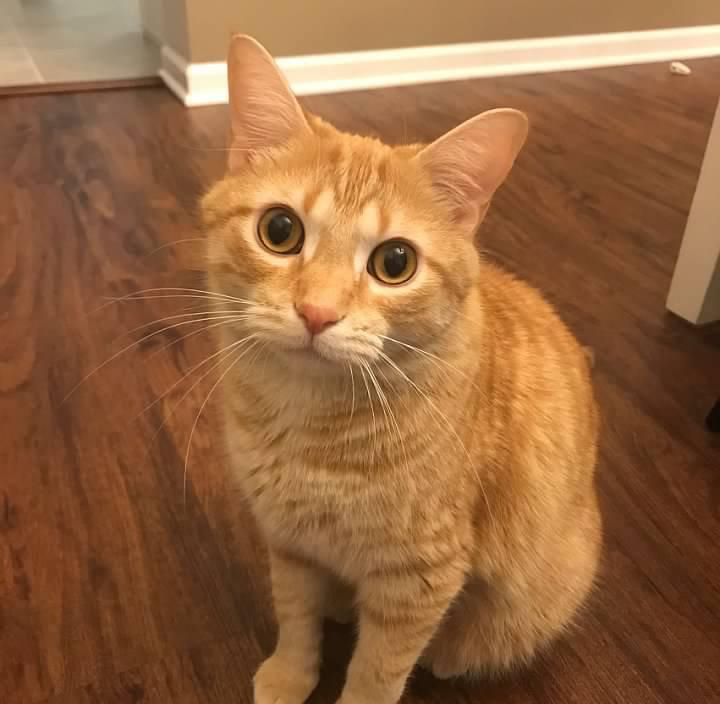Feline Wellness
in St. John, IN
The term “feline wellness” describes veterinary procedures and treatments that are intended to protect the health and welfare of young kittens. For kittens’ early development and long-term health, proper wellness care is crucial.


Feline Wellness
Routine wellness exams and preventative care are important for your cat’s health. At the wellness exam, a comprehensive physical exam is performed, as well as a discussion of diet, behaviors, parasite prevention, and analysis of lifestyle. Based on your cat’s lifestyle, an individualized vaccination plan is determined (scroll to the bottom of this page to read more details about vaccines). We at St. John Animal Clinic recommend yearly blood screenings to establish a baseline normal for your individual cat and to assist in detecting problems earlier. Cats are actually known to hide many of their symptoms, and sometimes they are not brought in until the disease is already advanced. The visits will differ slightly based on your cat’s life stage. Please see more detailed explanations below based on age.
Kitten (Birth Up to 1 Year):
Kitten vaccination series start as early as six weeks old and continue every three to four weeks until they are between sixteen and twenty weeks old. Each wellness visit includes a comprehensive exam to ensure your kitten is healthy and developing normally. During the visits, we establish a deworming plan and check for any ectoparasites, including ear mites and fleas. We discuss testing for feline leukemia (FeLV) and feline immunodeficiency virus (FIV). We will also review the timing for spaying or neutering and parasite prevention products. Any other questions, such as diet, grooming, nail trimming, litter box tips, etc, will be answered. If it is your kitten’s first visit, we ask that you bring all health papers you may have and a fresh stool sample to examine for intestinal parasites. We also recommend putting your kitten in a carrier or on a harness and leash for their safety.
Young Adult (1-6 Years):
Bringing your cat in for yearly physical exams and wellness bloodwork allows us to detect changes before they become major problems. We perform a thorough physical examination that includes an evaluation of your cat’s coat, skin, eyes, ears, teeth, heart and lungs, joints, and internal organ systems. We will discuss and review if any vaccinations are needed for your cat. As your cat matures, we focus on any changes, including grooming habits, behavior, weight, oral health, parasite prevention, etc. Dental cleanings under anesthesia may be recommended based on the stage of dental disease. The annual exam is also the perfect opportunity to speak with our doctors about any concerns.
Mature Adult (7-10 Years):
At these visits, we strongly recommend regular blood work. Cats rarely show outward signs of dental disease or early kidney problems, which, when more promptly treated, can lead to a longer and improved quality of life. Dental disease can be very painful, and most cats will benefit from a dental cleaning under anesthesia by this age. We monitor for any changes in appetite, urination, cognitive function, mobility, grooming habits, weight loss, or gain. At this age, environmental changes may be needed, such as easy access to litter boxes, beds, etc. A comprehensive physical exam will also allow making sure no other abnormalities are detected.
Senior (>10 Years):
At this life stage, we recommend seeing your cat at least every six months. During your cat’s senior exam, a thorough physical exam is performed. We often recommend regular blood work to monitor chronic diseases and medications which your pet may be on. Make sure to bring a list of all medications, as well as supplements that your cat is receiving. Closely monitoring your senior pet’s activity, appetite, mobility, and thirst can give us clues to changes, which, when managed early on, can often lead to a better quality of life for our aging companion.
Feline Vaccinations
- Rabies Vaccine
We offer a one and three-year vaccine. This vaccine is required by law and must be given by a licensed veterinarian. Rabies is a deadly disease that is caused by a virus that affects the nervous system. Cats are exposed most commonly through wildlife such as bats, raccoons, skunks, coyotes, and foxes.
- FVRCP
Feline Viral Rhinotracheitis-Calicivirus-Panleukopenia Vaccine- also referred to as feline distemper vaccine. This is considered a core vaccine for all cats. This vaccine protects against severe upper respiratory tract diseases as well as feline parvovirus, which can cause severe vomiting, diarrhea, and low white blood cells.
- FeLV
Feline leukemia is a virus that is most commonly transmitted through saliva; it can also be transmitted during pregnancy or through the milk of an infected mother. If a progressive infection occurs, it can lead to lymphoma, anemia, or other secondary diseases. This vaccine is considered a core vaccine for kittens and cats less than a year old. For adult cats, this vaccine is a lifestyle vaccine, meaning only those cats who go outdoors or are in contact with cats of positive or unknown FeLV status need it yearly.
Microchipping
We recommend that every kitten have a microchip implanted at some time in their adolescence. A microchip is a tiny implant (about the size of a grain of rice) that permanently identifies you as their owner. If a cat is lost, all animal controls, shelters, as well as veterinary clinics have microchip scanners that can identify who the cat belongs to. We use “Save This Life” microchips, which allow the finder to Google the microchip, and the company will call you immediately when your pet is found.
https://www.savethislife.com/
https://www.avma.org/resources-tools/pet-owners/petcare/microchips-reunite-pets-families/microchipping-faq
Heartworm Disease
Heartworms are parasites that affect dogs, cats, and other mammals. Heartworm disease is spread by mosquitoes and is preventable. Indoor cats are not necessarily safe from mosquitoes. Cats are not the typical heartworm host; they can have severe effects from just a few heartworms, as compared to dogs which may have hundreds of heartworms. Typically, cats with heartworm disease are not diagnosed as having it, and they usually present with coughing/wheezing. There is NO treatment for heartworm disease in cats. Prevention is key in protecting cats from heartworms.
Heartworm prevention should be given at the same time every month, year-round, for your cat’s entire life. Did you know that heartworm preventatives work by treating heartworms already infecting your cat within the past month or longer? That is why it is extremely important to give the prevention on time, every time. There are options for heartworm prevention available to you. Let’s talk about the heartworm preventative that is right for you and your pet!
